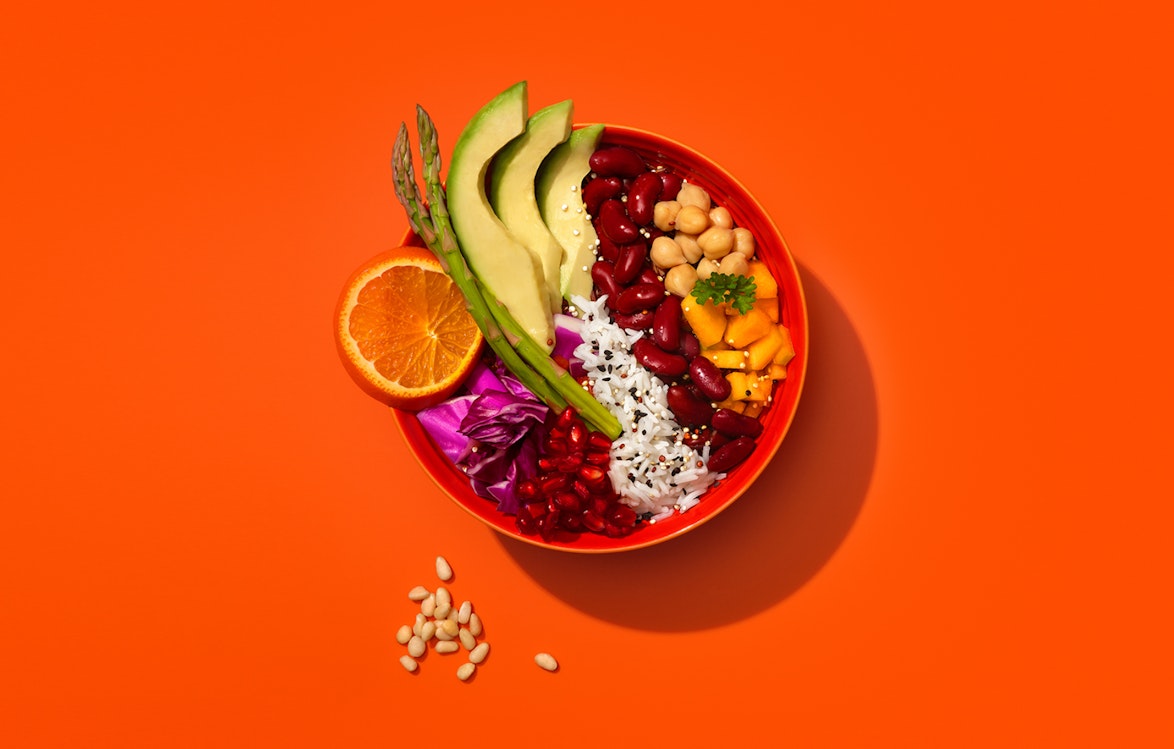Time to read : 4 min
Important Nutrients for a Plant-Based Lifestyle
People sometimes say that you may lack nutrients in a plant-based lifestyle. Which nutrients are they talking about, and is this true? Let's delve into it in this article.
Plant-Based = Healthy!
Research indicates that by eating a varied plant-based diet, you actually get more nutrients than when consuming meat (1).
Animal-based foods, for example, contain relatively few fibers. However, fibers are incredibly healthy! They are good for your teeth and heart, provide a feeling of fullness, support proper digestion, and offer various other health benefits. Since vegans replace meat products with plant-based alternatives, they end up getting more nutrients found in plants.
Essential Nutrients
Individuals following a plant-based or vegan lifestyle often fall short in just two nutrients. Fortunately, this is easily remedied by taking a (plant-based) supplement.
Vitamin B12
Vitamin B12 is an essential vitamin responsible for the production of red blood cells and the proper functioning of our nervous system. Unfortunately, it's mainly present in meat, fish, and dairy products. Therefore, it is recommended to take a daily 50-100 mcg vitamin B12 supplement.
Vitamin D3
Vitamin D3 plays a role in many processes in our bodies. It supports a well-functioning immune system and metabolism and is crucial for maintaining supple and strong muscles. Vitamin D is freely obtained from the sun or by consuming certain animal products. However, since the sun doesn't always shine, and many of us spend a lot of time indoors, the advice is to take a daily 2000 IU vitamin D3 supplement.
Key Nutrients
Iron, calcium, proteins, omega-3, zinc, iodine, vitamin K, and selenium are essential nutrients commonly found in animal products. Fortunately, you can also get these nutrients from plant-based foods. You just need to know which products contain them. It might be a bit of a puzzle at first, but after that, it's a breeze.
Iron
Iron plays a crucial role in transporting oxygen to the cells in your body and (in children) in brain development. While abundant in meat, it is also found in spinach, whole-grain bread, oatmeal, and beans.
Calcium
Primarily present in dairy products like milk and yogurt, calcium is also abundant in kale, broccoli, and spinach. Plant-based alternatives with added calcium are also available.
Proteins
Proteins are the building blocks of our bodies. Many still believe that proteins are mainly derived from animal products. Nonsense! There are plenty of plant-based protein-rich foods to choose from. Check out this list of over 70+ protein-rich foods!
Omega-3
Omega-3 fatty acids (DHA and EPA) help keep your heart, eyes, and brain healthy. While commonly obtained from fatty fish, you can also get them directly from the source: algae that fish consume. Algal oil is a good way to get Omega-3 in a plant-based manner. It's also found in chia seeds, ground flaxseed, and walnuts.
Vitamin K
Important for proper blood clotting and maintaining strong bones, vitamin K is found in broccoli, kale, spinach, and Brussels sprouts. Supplements are also an option. Babies are given a supplement in their first three months because they don't produce vitamin K during that time.
Iodine
A crucial element in thyroid hormone production, iodine is necessary for nervous system development, good metabolism, and proper growth. While abundant in animal products like fish, dairy, and eggs, it's also found in iodized bread and seaweed. If you consume little bread or seaweed, a supplement is recommended to prevent iodine deficiency.
Selenium
Critical for thyroid function and protecting red blood cells and cells from damage, selenium is found in red, green, and brown lentils and oats. Selenium deficiency is rare in the Netherlands, but it's important to mention because it's abundant in animal products.
How to Get All Nutrients
By eating a varied diet! With green leafy vegetables, fruit, whole grains, soy products, legumes, nuts, seaweed, and seeds, you ensure that you get (almost) all essential nutrients.
A handy tool to use is the Wheel for Life. This is the plant-based alternative to the Food Wheel. It consists of healthy and responsible dietary advice and practical tips for people with a vegan lifestyle.
Make It Easy for Yourself
Living a vegan life and still getting enough of everything can be a bit of a puzzle, especially in the beginning. Therefore, make it easy for yourself and take vitamin D3, B12, and omega-3 as supplements.
You can find all these supplements in our assortment! We have also developed a plant-based protein shake that allows you to easily get extra protein every day. All our products are 100% plant-based, and our packaging is 100% recyclable!
